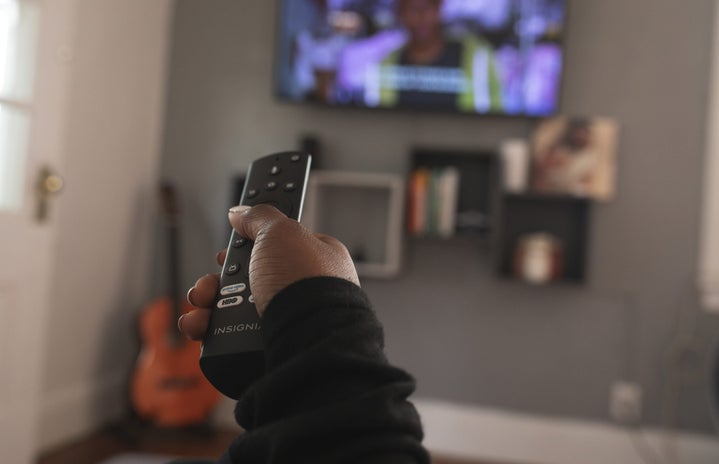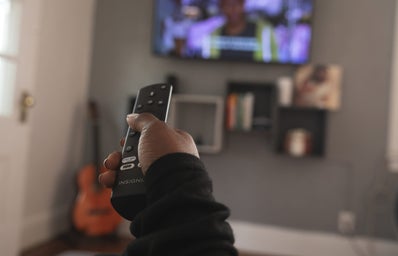**Trigger Warning: This article discusses all types/forms of abuse, in particular harmful ideas surrounding one’s bodily image, the depiction of injuries, as well as verbal, emotional, mental and physical abuse. Please note that some of the embedded links in this article link to/open articles that contain this triggering content as well.
A YouTube compilation of the popular reality show Dance Moms entitled, “ALDC Dances Through the PAIN – Dance Moms BIGGEST INJURIES (Flashback MEGA-COMPILATION)” features… well, the young dancers who feature/star on the show getting injured. The clip is replete with the agonized (and, naturally, all too justified) cries of the injured dancers, their attendant mothers’ panicking and generally quite unpleasant to watch.
Yet, after a mere ten minutes of this hour-long compilation, a clear through-line has been established throughout. It is not the through-line one might expect, that dancing is a risky undertaking and injuries can be dreadful, nor a compassionate view of what it is like to get injured. Instead, what emerges is a ruthless utilitarianism.
This utilitarianism comes in the form of Abby Lee, the head of the dancing school the girls attend and their coach. While the girls (at least in the opening ten minutes of the compilation video) do not appear to be made to dance while injured, Abby’s outlook is one akin to no pain no gain. Lee can be heard exclaiming things like, “They did their job. And that’s what they’re expected to do.” Additionally, after Lee instructs the group of dancers to ignore a fellow dancer’s injury and continue with their routine, she adds that she “can cut somebody right here right now.” There is little to no consideration offered, at least as this incident is depicted in this compilation, for the potentially scarring incident these young girls just witnessed; Abby Lee does not comfort the group before sending them off to dance (although, as I just mentioned, the scene may be truncated, so she may have done so).
The contrast between what I, a seemingly reasonable viewer took from this compilation (that the dancers aren’t necessarily treated with much gentility) versus whatever Dance Moms was attempting to portray – the struggles of young dancers, sensationalised drama? – could not be more evident, nor more jarring. This leads to my central question: what else does reality television obfuscate and obscure?
Now, viewers are no fools. The gaffes and falsified moments of reality television are well documented – see the controversy around the scene on Keeping Up With The Kardashians in which Kim Kardashian confesses her desire to divorce (her then) husband Kris Humphries to her (Kim’s) mother, which was seemingly recorded after the fact. Another key example is Love Island’s post-finale blues, which usually see the season’s winners splitting up, leaving their relationship – which is how contestants win Love Island, as a couple – under question.
But it has never been a secret to viewers that reality television, despite bearing the moniker “reality” is plenty fantastical. In fact, you could look at reality television as a fantastical time capsule of sorts or a hermetically sealed fantasy of the “real”, but the souped-up real.
Yet this fantasy clearly runs the gamut – from the more obvious gaffes such as the fails of Keeping Up With The Kardashians to the more serious, potentially harmful scenarios seen in Dance Moms, uncomfortably packaged for our “entertainment”.
Take the allegations against Ellen DeGeneres too – smiles to your face, but a nightmare behind the scenes. Or Jeremy Clarkson, beloved on Top Gear (although Top Gear and Ellen perhaps don’t count as reality programmes) for many seasons but also permitted to commit an untold number of verbal, often racially insensitive insults both on Top Gear and behind the scenes. This extended to Clarkson verbally and physically abusing a producer behind the scenes of Top Gear. Following this incident with said producer, Clarkson was fired.
In fact, my earlier statement should be revised: what does popular entertainment occlude?
Does it hide abuse?
Sadly, the answer would appear to be yes – popular television doesn’t necessarily always showcase abuse explicitly (although Dance Moms is certainly able to fall within the category of abuse) but the central figures of many shows – Abby Lee, the axed Jeremy Clarkson, Ellen DeGeneres – are allowed to commit far too many uncalled for behaviours, all in the name of popular entertainment.
As I’ve said, fools the general public are not. Viewers do not necessarily have any say in what gets exhibited on television nor the ability to directly alter those shows, but we all can all perform the task of watching carefully, with our eyes wide open to the alleged misconduct of popular figures and unacceptable conduct that unfolds as in Dance Moms.
Reality television, popular television is not real – it is harmful and often massively problematic.
So watch we will – with eyes wide open.


